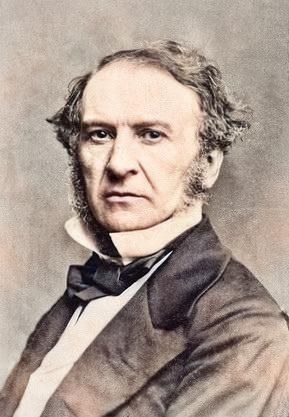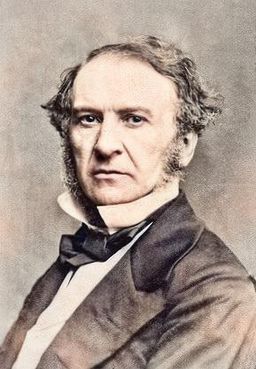
His Early Years
William Ewart Gladstone (also known as W.E Gladstone and William Gladstone) was born in Rodney Street in Liverpool on 29th December in 1809, however he was of purely Scottish descent. His parents were Sir John Gladstone and Anne MacKenzie Robertson and he was the fifth of six children. His father, John Gladstone was a devout Presbyterian and his Scottish mother was a very committed evangelical woman, the family held strong religious beliefs. Gladstone later wrote "The Evangelical movement... did not ally itself with literature, art and general cultivation; but it harmonized well with the money-getting pursuits."
He started his elementary education at a rectory at the St. Thomas's Church at Seaforth, near to his home from 1816 - 1821. Gladstone started writing a diary from the age of 7, which he continued throughout his life. He was then sent to Eton, following the footsteps of his brothers, where it has been said that he ‘did not particularly distinguish himself'. He went on to study at Christ Church, Oxford where he developed a reputation as a fine debater, a skill he would hone during his political career. After one speech he made on 14th November 1830, a fellow student, Charles Wordsworth, described it as "the most splendid speech, out and out, that was ever heard in our Society." Francis Doyle added: "When he sat down, we all of us felt that an epoch {the beginning of something] in our lives had occurred." . He mistrusted parliamentary reform; his speech against it in May 1831 at the Oxford Union, of which he had been president, made a strong impression. In December 1831, he received his double first class degree in mathematics and classics.
Gladstone originally intended to take orders in the Church of England, but his father dissuaded him, he followed his father's wishes, and did not pursue a career in the church, which was a path he would go on to follow as a young conservative minister, very much still under the influence of his family’s beliefs, a product of his upbringing one might say. Thereafter, he embarked on a tour to Belgium, France, Germany and Italy. Gladstone entered Lincoln's Inn in 1833, with intentions of becoming a barrister, by 1839 he had requested that his name should be removed from the list because he no longer intended to be called to the Bar.
This website is committed to the works and memory of William Gladstone. It is an independent project. © Copyright. All rights reserved.

